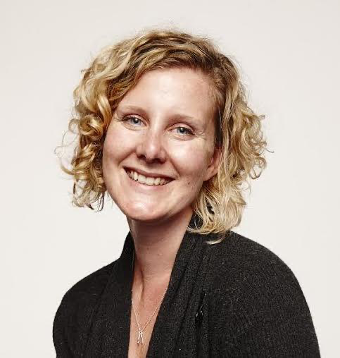Alexander Flint Mitchell took home the prize for Best Business Pitch in June’s Pioneer awards. He reflects on a life-changing year of building his business, Blind Cupid.
When Alexander Flint Mitchell enrolled onto Birkbeck’s MSc Business Innovation last September, it was with a view to changing career direction and developing the business idea that had been on his mind for the last five years.
Handing in his notice just one month later, you could say things had moved a little faster than expected. “Looking back on it, that was probably a bit naïve,” Alexander admits, “but if you want to achieve something big, you’ve sometimes got to take a leap into the unknown.”
The motivation for this leap of faith? A little idea for an app called Blind Cupid.
Blind Cupid is a dating app with a difference, using a never-before-used science to match people based on their fundamental values, giving users the chance to see bios and compatibility scores before they reveal pictures to potential matches.
“A lot of dating apps claim to be all about personality,” says Alexander, “but it’s really just a slogan. In their questionnaires, they will ask about polarising issues like politics, which is valid, but simply agreeing on something doesn’t mean that you’re compatible. Take Brexit, for example: people voted Leave on both extremes of the political spectrum. It’s essential to understand the rationale behind the belief.
“The questionnaire that we use for Blind Cupid goes right to basic principles. The greatest feedback we have received so far from users is that they could see the value in the product even from just filling out the questionnaire – before they’d received any matches. When we tested the product, 80% of the test group went on four or more dates with their matches – that’s way higher than anything else in the market.”
Was the concept for the app born out of Alexander’s personal experience? “People ask me that a lot,” he says, “but in reality, the idea just came to me in a lightbulb moment, fully formed. I came up with the concept aged 21, while studying Law and working in the City. I found the reality of being a lawyer very boring and would end up spending most of the day daydreaming about this app. I knew that I was going to do it eventually, but I wanted to do it properly.”
In 2019, Alexander applied for the MSc Business Innovation at Birkbeck, specialising in entrepreneurship. “Studying in the evening meant that I could continue working in the City until the business was up and running,” Alexander explains. “I thought that, worst case scenario, I could find a role in venture capital, but I really wanted to give Blind Cupid a go.
“The course was everything I wanted to learn. One of the early modules, Entrepreneurial Venture Creation, required us to write a business plan. I wrote a business plan for Blind Cupid, and that’s when I decided to quit my job.”
As Alexander worked through the masters and the Pioneer programme, his business and networks grew. “I’ve made some amazing connections and put together a dedicated team – we’d meet at 8am and still be working together at 1am, before we were earning any money to do it, which just shows the commitment we all have to the business.”
Alexander’s Pioneer experience culminated in June’s virtual awards ceremony, where he took home the award for Best Business Pitch. “It was a shame not to be able to do the finale in person, but I was really surprised and pleased by how many people came along to the virtual ceremony. When pitching Blind Cupid to investors, it usually takes a full hour to go into all the detail, so drilling it down to three minutes was a real challenge. I’m thrilled to have won the Best Business Pitch award; it feels like all the hard work is paying off.”
Alexander is currently fundraising for Blind Cupid, with the aim of getting the product on the market within the next three months. Encouragingly, it seems that he’s also hit on an idea that can withstand the current tough economic conditions: “Strangely enough, the dating industry is booming at the moment. Regardless of what’s happening in the economy, people have a natural desire to have someone in their lives romantically, and that doesn’t go away in a recession.
“The decision to do the master’s was a life-changing, life-affirming decision. It’s crazy to think that the idea that I had when I was 21 is now my full-time job.”
Further Information
















